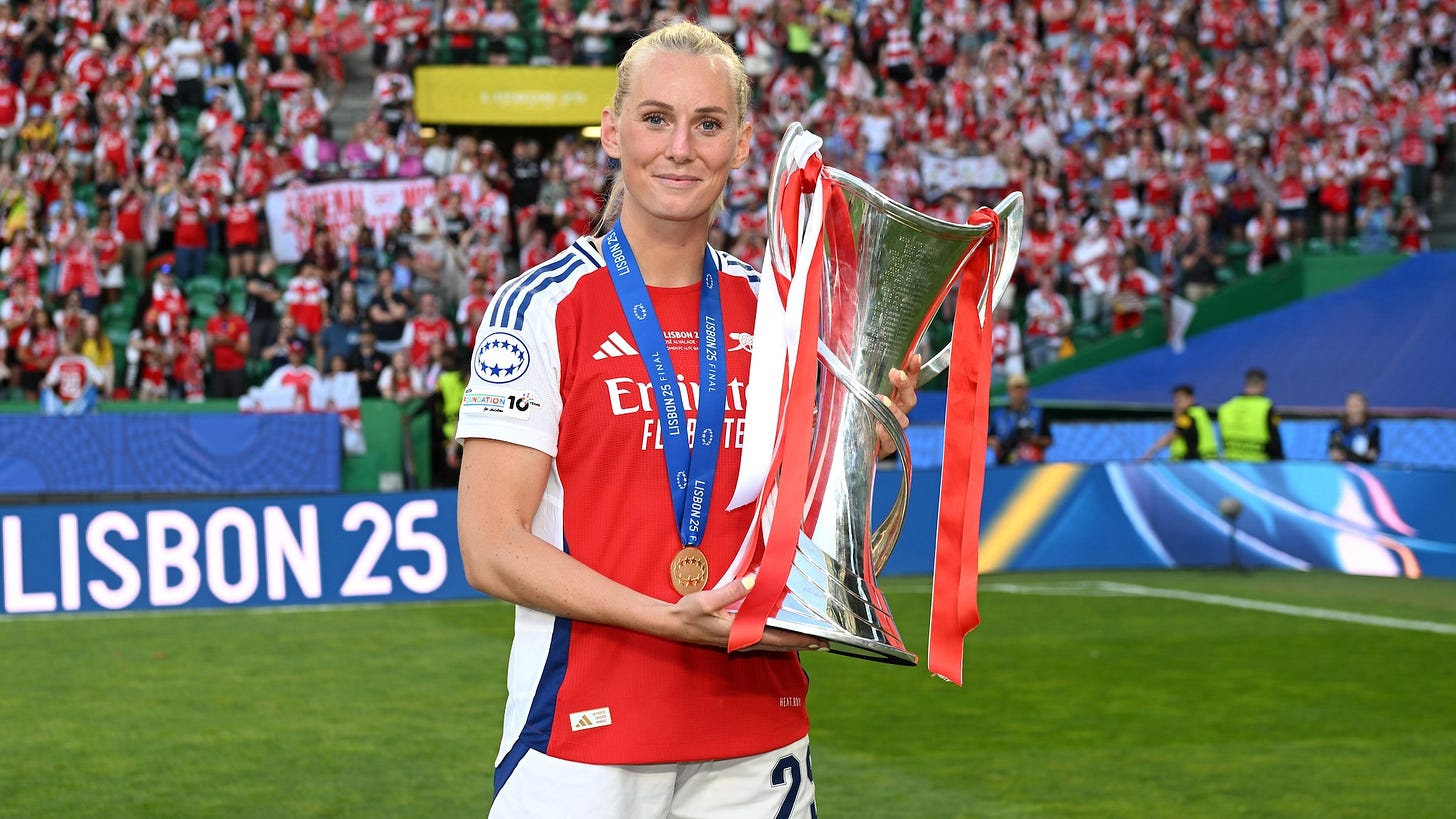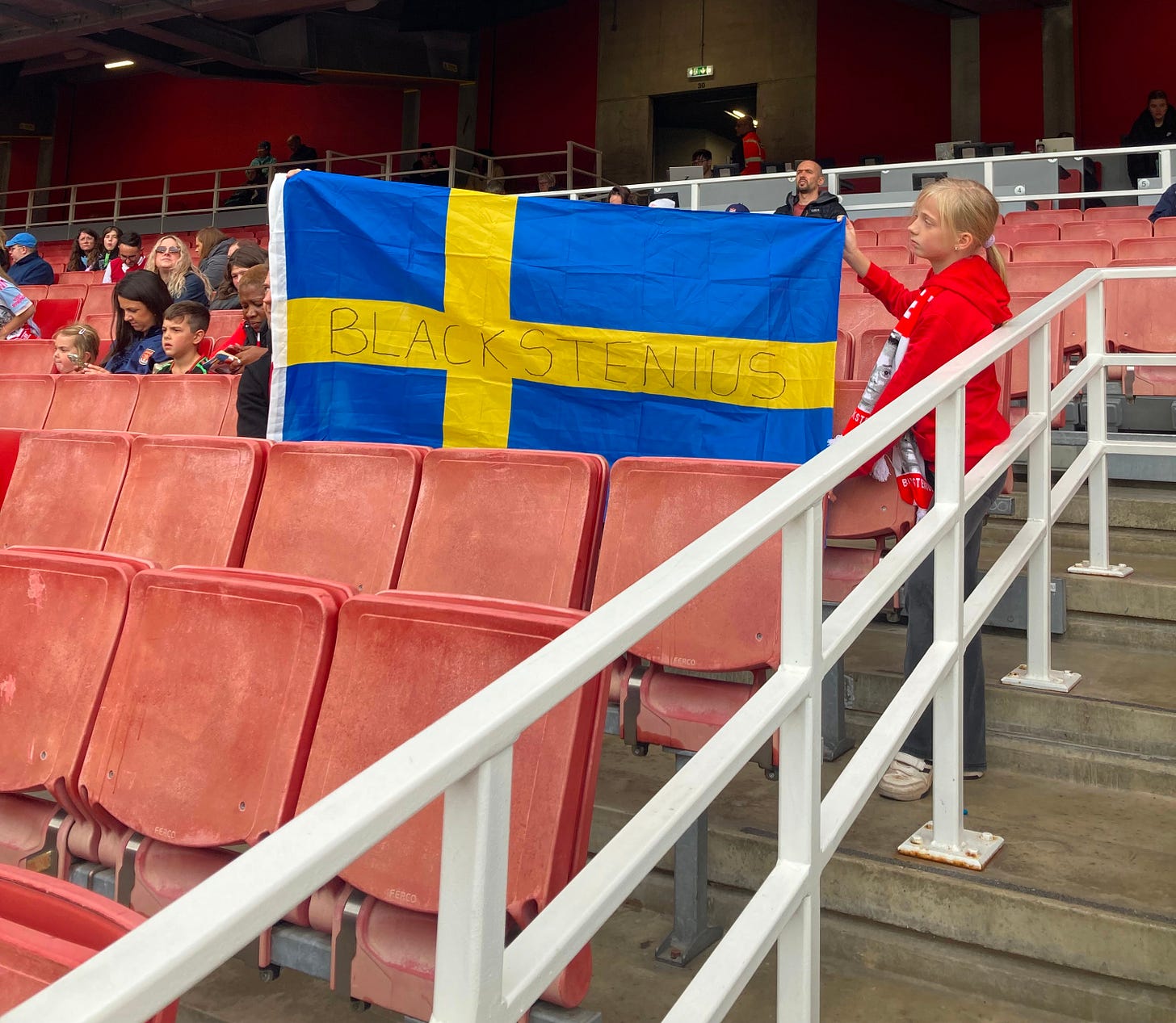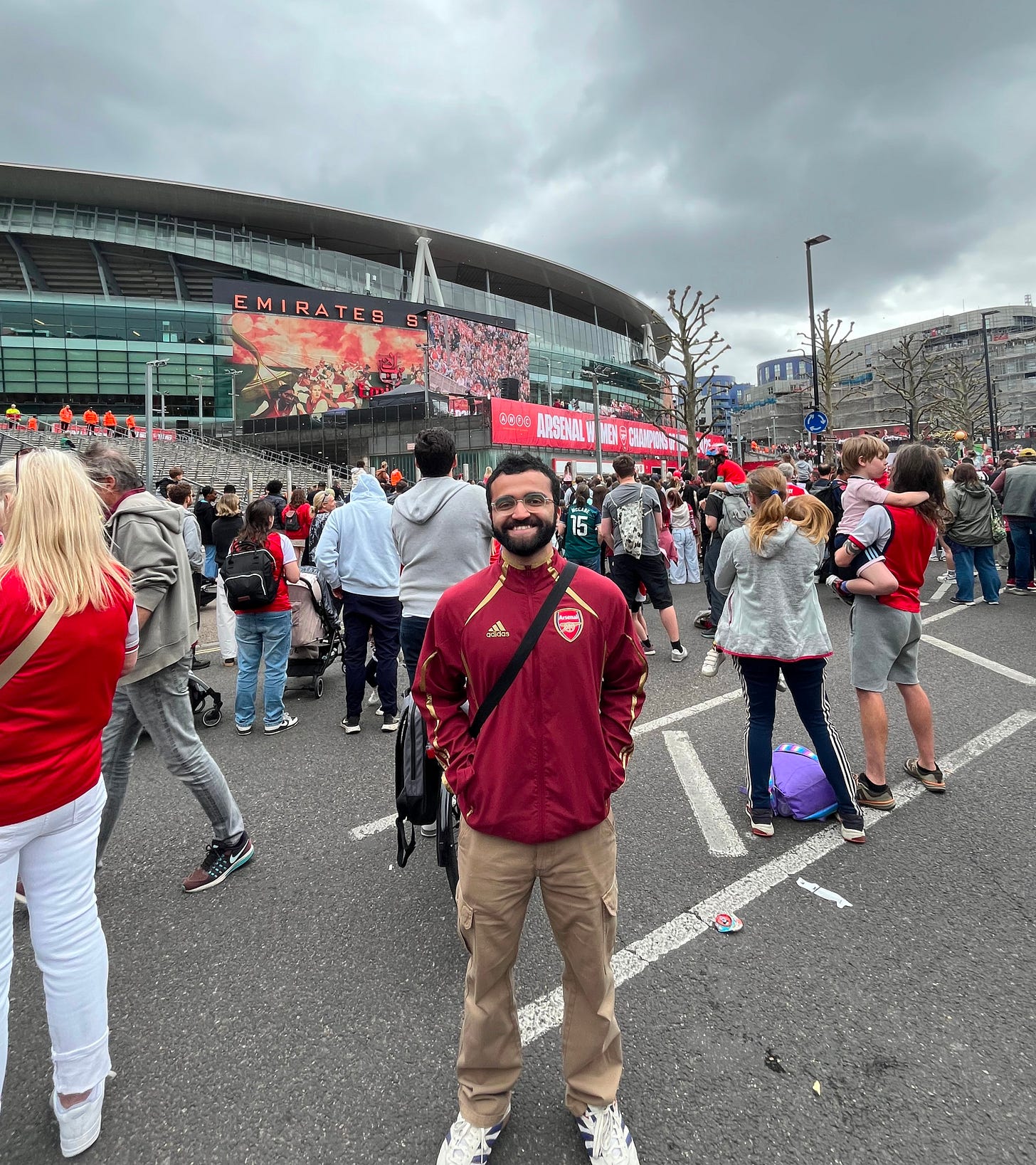There is a category of players that make you feel safe. The ones whose decision-making you trust blindly. The ones who give you a brief respite from your match-anxiety. The ones you don’t have to yell instructions at through the screen. They don’t get you to the edge of your seat, rather allow you to sink in.
Martin Ødegaard is that kind of player. Mariona Caldentay is. Cesc Fabregas was. Stina Blackstenius is not.
Few footballers have infuriated me in the way the Swedish forward has. But then last Saturday, she went and scored the winning goal to lead Arsenal to Champions League glory against the mighty Barcelona.
The dissonance of the moment sent me spiralling down a path of reflection over my relationship with the team. And the role Blackstenius has inadvertently played in shaping it.
Women’s football remains stuck in a conceptual stage in India, so my exposure to the sport was limited until I moved to London. England’s triumph at Euro 2022 catalysed the growth of the game in the country and few clubs rode that wave of interest in the way Arsenal did.
It was an easy gateway into the sport. Less than a week after moving, I attended the women’s North London derby at the Emirates. Barring the big names, I didn’t know a majority of the players involved that afternoon. But, even a casual like me could see that a crowd of 47,367 attendance at the Emirates was special.
Curiosity drove my foray into this world. The players wore the same colours, played in the same stadium and fought for the same badge. Yet, it all felt new.
Over the past year in particular, I’ve followed Arsenal Women closely. And this immersion into a new footballing culture got me thinking about when you can call yourself a fan of a team?
Is it when you start regularly attending games? Or when you buy the kit? Maybe after joining the team’s subreddit? Is it when results start to feel proportional to your mood?
I ticked most of these boxes and yet until recently, felt hesitant to call myself an Arsenal Women fan. This was in part due to the fact that my fandom is inherited, not innate. I hadn’t done the hard yards to follow the team when they played in decrepit stadiums in front of measly crowds. I boarded the train when it was on the fast track. Such has been the influx of people like myself into the sport since the England’s Euros triumph that those who had been involved in women’s football prior to the tournament often feel the need to point out that the sport existed in the country before 2022.
I remember leaving the Emirates after a Women’s Super League game (WSL) in the tail end of 2023-24, and overhearing a couple of supporters asking a merchandise seller if they had any Lotte Wubben-Moy scarves.
The guy running the shop was an old-timer, the type who had been around for years. After the girls passed, he turned to his colleague and quizzically asked ‘Who is Wubben-Moy?’
‘Oh she’s the big fan favourite here for the women’s team,’ he replied.
Passion can’t be faked or rushed, and mine was a gradual conversion from spectator to supporter. And this Trumpian weave brings us to Blackstenius, who played a key role in this process.
It’s February and Arsenal are playing Manchester City in a key WSL clash. I’m watching from home, working a weekend shift. It’s a frenetic game where goals are flowing. And as are Stina’s misses. After a particularly egregious one where she scuffed a one-on-one alarmingly wide off goal, I find myself ranting on Slack to a colleague.
By then, I had a grasp on fan sentiment. I understood the reverence for captain Kim Little. I got why Leah Williamson was put on a pedestal and why Katie McCabe polarised opinion. But, the cult status Stina held baffled me.
Stina is more chaos than clinical. Her ability to find space in the box is unparalleled - she has the highest xG/90 in the WSL this season. It is what makes the discrepancy in her output so jarring. The fact that she had scored in a cup final and key league clashes made fans more forgiving of her flaws. It was something I struggled to do.
The City game was the typical Stina experience. After banging my head about her for the entire game, she went and scored a late winner to shut me up.
But, I wasn’t quiet for long. It wasn’t personal - I just did not see how she fit in with the direction the team was moving in. The strength of my opinion surprised me. No player on the team had evoked such deep-rooted sentiment
Frustration with a player is just the flip-side of loving them. The currency in both cases is one of care. Stina and her misses made me feel something.
One of my co-workers held similar views on the forward, and in the leadup to the Champions League final, she joked she’d get a jersey with Stina’s name on it if she scored.
‘Here we go’ I sighed to myself, seeing her come on at the hour-mark in the final with the game still goalless. She could have scored a hat trick, should have definitely bagged a brace but did score the winner. Her run behind the defence was as good as the finish. She later spoke of her shock at scoring. It’s a sentiment I related to.
1-0 to the Arsenal. Champions League winners. Blackstenius goal. I’ll be damned.
Minutes after the final whistle blew, my co-worker sent me a screenshot of her jersey purchase.
A WoSo Consumption Corner
Read: A Guardian profile on Blackstenius’ rise from the depths of Swedish football to the top of Europe.
Watch: The level of access DAZN were given for this six-part docuseries on Chelsea Women’s 2019-20 season is unprecedented.
Listen: An episode from the Arsecast breaking down Arsenal’s win over Barcelona and what it means for the club.






